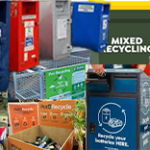Eco-friendly: What is it all about
Being eco-friendly, or environmentally friendly, is about making choices and adopting practices that minimize harm to the environment and promote sustainability. It encompasses a wide range of actions and behaviors aimed at reducing one’s ecological footprint and preserving natural resources for current and future generations.
- Conservation: Eco-friendliness involves conserving natural resources such as water, energy, land, and biodiversity. This includes reducing consumption, using resources efficiently, and protecting ecosystems and wildlife habitats from degradation and depletion.
- Waste Reduction: Minimizing waste generation and promoting recycling and reuse are central to eco-friendly living. This includes reducing single-use plastics, composting organic waste, and recycling materials such as paper, glass, plastic, and metal to divert them from landfills.
- Renewable Energy: Embracing renewable energy sources such as solar, wind, and hydroelectric power is a fundamental aspect of eco-friendly practices. Transitioning away from fossil fuels and supporting clean energy initiatives helps reduce greenhouse gas emissions and mitigates climate change.
- Sustainable Consumption: Eco-friendly living involves making conscious choices about what we consume and how we consume it. This includes opting for sustainable and ethically sourced products, supporting local businesses, and reducing consumption of goods and resources through mindful purchasing and lifestyle choices.
- Transportation: Choosing eco-friendly transportation options such as walking, biking, carpooling, or using public transit helps reduce carbon emissions and air pollution. Investing in fuel-efficient vehicles or transitioning to electric vehicles further promotes sustainable transportation practices.
- Environmental Stewardship: Being eco-friendly means taking responsibility for the impact of our actions on the environment and actively participating in efforts to protect and preserve natural ecosystems. This includes advocating for environmental conservation, supporting policies and initiatives that promote sustainability, and engaging in community-based environmental projects and initiatives.
- Education and Awareness: Educating oneself and raising awareness about environmental issues, sustainable living practices, and the importance of biodiversity and conservation are integral to being eco-friendly. Sharing knowledge, inspiring others, and fostering a culture of environmental stewardship are essential components of creating a more sustainable society.
Ultimately, being eco-friendly is about recognizing our interconnectedness with the natural world and taking proactive steps to minimize our negative impact on the environment while promoting harmony, balance, and resilience in the ecosystems that sustain life on Earth. It’s a continuous journey of learning, adapting, and making informed choices that prioritize the health and well-being of our planet and all its inhabitants.
















